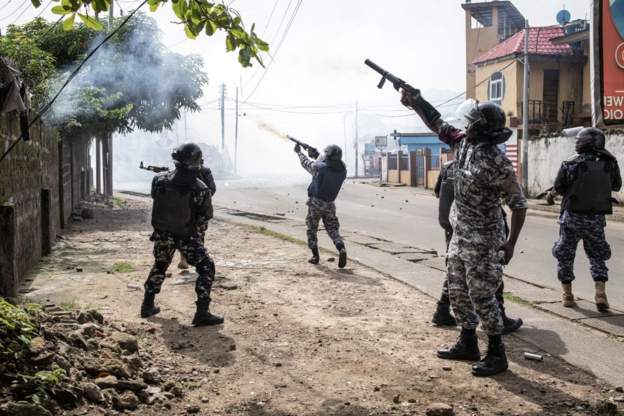
The Liberia government has confirmed handing over former Sierra Leonean Chief Superintendent of Police, Mr. Mohammed Y Toure, to the Sierra Leonean authorities, despite growing concerns over his extradition.
Mr. Toure, also known as “Sankoh Paul Alimamy” and “Yeate Yeate,” was apprehended in Monrovia by Liberian security forces following a request from Sierra Leonean authorities. He stands accused of being involved in plotting subversive activities aimed at destabilizing the government of President Julius Maada Bio.
Liberian officials have stated that the decision to extradite Mr. Toure was based on preliminary investigations conducted within Liberia and assurances from the Government of Sierra Leone that his rights, including the right to a fair trial, would be respected. The move aligns with the 1986 Non-Aggression Security Treaty among Liberia, Sierra Leone, and Guinea, as well as the 1994 ECOWAS Convention.
However, the decision has sparked controversy, with international human rights organizations raising concerns about the potential violation of Mr. Toure’s rights in Sierra Leone.
The Independent National Commission on Human Rights (INCHR) released a statement on Tuesday, August 8, 2023, urging the Liberian government to carefully consider the extradition request in light of international human rights obligations.
Cllr. T. Dempster Brown, Chairperson of INCHR, highlighted several key points from international agreements that should guide the decision on extradition:
Extradition should not be granted for offenses regarded as political or connected to political activities.
Extradition should not be allowed if there are substantial grounds to believe it is motivated by factors such as race, religion, nationality, political opinion, or status.
Extradition should not proceed if it violates provisions of multilateral international conventions.
Extradition should be denied if the requested person faces the risk of torture, inhuman treatment, or if they have not received adequate guarantees in criminal proceedings.
Furthermore, INCHR cited Liberia’s commitment to the 1969 OAU Convention, the 1951 UN Refugee Convention, and the African Charter on Human and Peoples’ Rights, all of which emphasize the protection of individuals from threats to life, physical integrity, and liberty.
INCHR underscored that there is no formal extradition agreement between Liberia and Sierra Leone that would warrant the extradition of Mr. Toure. The organization urged the Liberian government not to honor the extradition request under these circumstances.
As tensions rise and the international community closely watches the unfolding situation, Liberia finds itself at a crossroads between honoring its regional commitments and ensuring the protection of individual human rights. The fate of Mr. Mohammed Y Toure remains uncertain as legal and diplomatic discussions continue to unfold.
Sierra Leone has previously accused unnamed individuals “at home and abroad” of planning violent protests





















